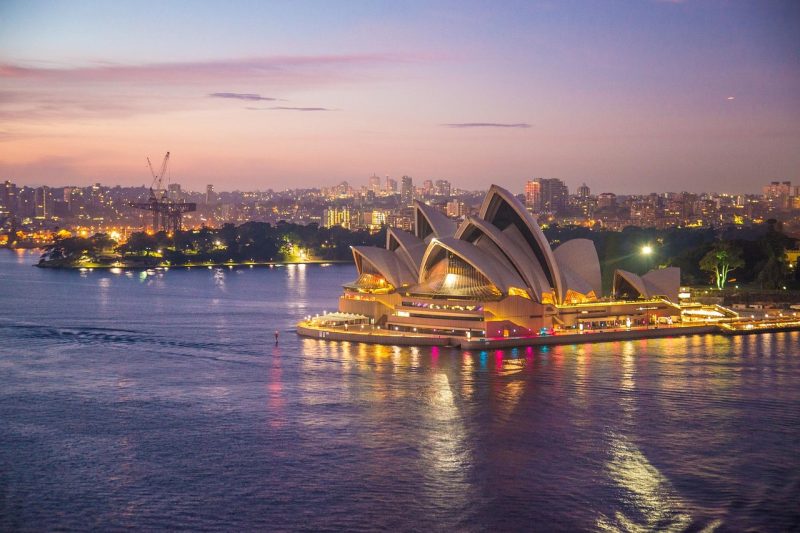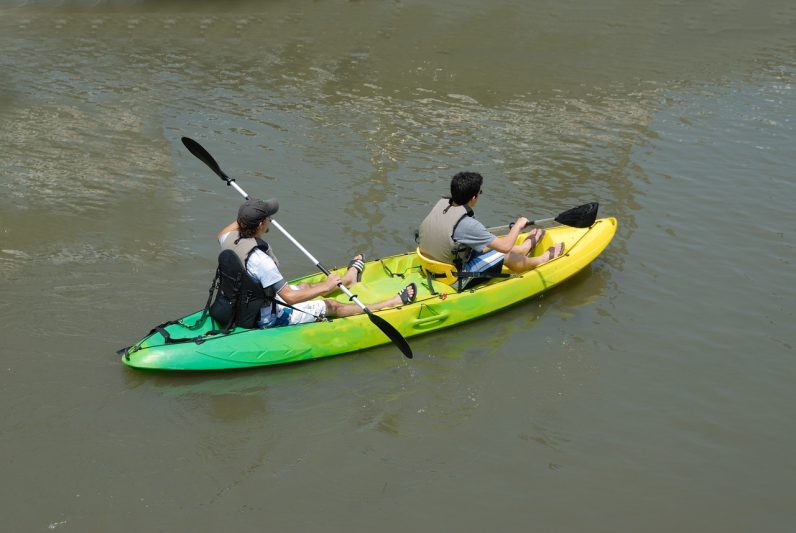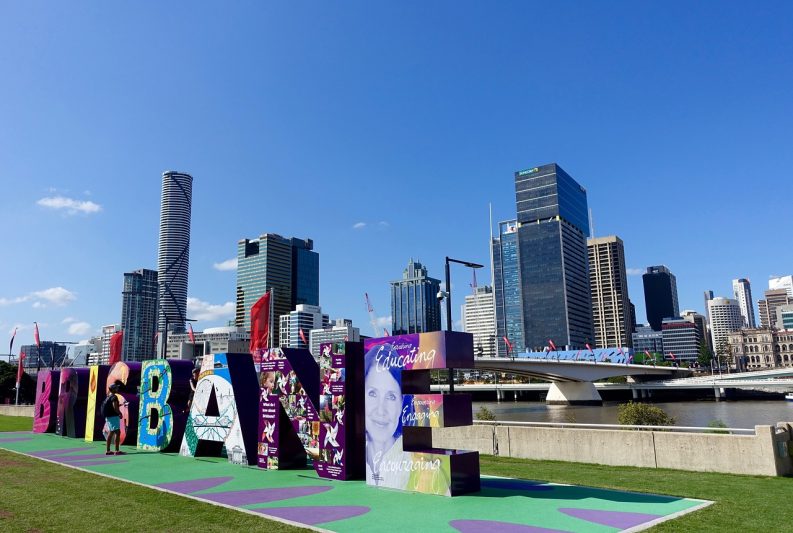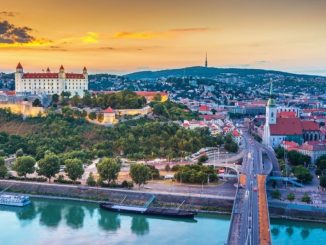The Importance of Choosing the Right Family Living Destination
Best places to live in Australia for families often evoke images of sun-drenched beaches, vibrant communities, and top-notch schools. Imagine waking up to the sound of waves crashing on the shore or the sight of lush parks just a stone’s throw away from your doorstep.

Australia is packed with great places for families, each catering to different tastes and ways of living. If you love the excitement of city life, Sydney has plenty to offer. For a more relaxed vibe, Brisbane might be just what you’re looking for.
And if you’re into arts and culture, Melbourne is a fantastic choice. These cities not only have top-notch schools and healthcare services but also offer lots of fun activities to keep both kids and parents happy and engaged.
Impact of Location on Family Happiness and Well-Being
The right location can make all the difference. Factors like proximity to schools, recreational facilities, and community support can create a sense of belonging. In contrast, areas lacking these resources may lead to stress and dissatisfaction. When families feel secure in their neighborhood and have access to essential services, they are more likely to thrive.
Key Factors to Consider When Selecting a Family-Friendly Area
When looking for an ideal place to settle down, consider these key factors:
- Safety: Is the area known for its low crime rates?
- Education: Are there quality schools nearby?
- Community: Does the neighborhood have a welcoming atmosphere with family-oriented activities?
- Recreation: Are there parks, playgrounds, and other outdoor spaces for children?
These elements intertwine to create a supportive environment where families can flourish.
Overview of Australia’s Diverse Living Options
Australia offers a wide array of living options that cater to different family needs. From bustling cities like Sydney and Melbourne, which provide urban advantages, to serene coastal towns and rural communities, each locale brings its unique perks. Families can find vibrant cultures, diverse educational institutions, and ample recreational activities throughout the country.
As you begin your search for the ideal family-friendly destination, it’s important to weigh these factors carefully. They will guide you toward a location that not only meets your immediate needs but enriches your family’s life in the long run.
With the importance of location established, let’s dive into one of the crucial aspects every family considers—safety.
Safety: A Top Priority for Families
When it comes to family living, safety stands tall as a crucial factor. Families need to feel secure in their environment, and understanding the crime rates and community safety initiatives can help paint a clearer picture of any potential area.
Crime Rates and Community Safety Initiatives
Low crime rates are essential for fostering a sense of security. Many communities across Australia have proactive measures in place to maintain safety. These include neighborhood watch programs, community policing initiatives, and regular safety workshops. Families can look for areas where local governments engage citizens in identifying and solving safety concerns, creating a collaborative atmosphere that enhances security.
Additionally, online resources often provide crime statistics, enabling families to compare different regions easily. Knowing the crime trends—whether they are decreasing or increasing—can significantly influence a family’s decision when choosing a new home.
Emergency Services and Healthcare Facilities
Access to emergency services is another vital aspect of safety. It’s reassuring to know that police, fire departments, and hospitals are nearby and equipped to respond quickly when needed. Families should investigate the response times and availability of these services in their prospective neighborhoods.
Healthcare facilities play an equally significant role in a family’s well-being. Proximity to quality healthcare ensures that routine checkups, emergencies, and specialized care are readily accessible. Many Australian cities offer comprehensive healthcare options, including maternal and child health programs that support families during critical stages.
Child-friendly Infrastructure and Road Safety Measures
Infrastructure tailored to children enhances overall safety. Look for neighborhoods with well-maintained sidewalks, safe crossings, and traffic calming measures like speed bumps. Parks and playgrounds should be designed with safety in mind, featuring soft surfaces and secure fencing.
Furthermore, community initiatives that promote road safety through education and awareness campaigns can greatly benefit families. This includes programs in schools that teach children about pedestrian safety and responsible behavior near roads.
By considering these factors, families can find a location that prioritizes their safety and well-being, ultimately leading to a happier, healthier life together. As we explore further, we’ll delve into how quality education contributes to nurturing young minds and laying the foundation for future success.
Education: Nurturing Young Minds
When it comes to raising a family, education is a cornerstone of development and future success. The quality of schools in an area can greatly influence not only the educational outcomes for children but also the overall satisfaction of families living there.
Quality of Schools

Australia boasts a diverse range of public and private schools, each with unique strengths. Public schools often provide strong community ties and access to specialized programs, while private institutions may offer tailored curricula and smaller class sizes. It’s essential for families to research the performance ratings of local schools, as well as any additional programs like gifted and talented education or support for special needs students.
Access to Early Childhood Education and Care
Early childhood education lays the foundation for lifelong learning. In Australia, access to quality early childhood education and care services is widespread, providing families with options that suit their needs. Many communities offer various childcare facilities, from formal daycare centers to casual babysitting arrangements, ensuring that parents can find the right fit for their little ones. Look for areas with strong early childhood programs, as these can be significant indicators of a supportive educational environment.
Proximity to Higher Education Institutions
As children grow, proximity to universities and vocational training institutions becomes increasingly important. Areas close to these establishments not only provide educational opportunities for older children but also foster a culture of learning and innovation. Families should consider locations that feature easy access to higher education options, promoting continued growth and development for all family members.
Education is a vital aspect of family life, influencing everything from critical thinking skills to social interactions. As families weigh their options for relocation, focusing on the educational landscape can significantly enhance their quality of life and prospects for the future.
Transitioning into the next topic, understanding the value of community and social support networks can further enrich family experiences in new surroundings.
Community and Social Support
Strong community connections are essential for families looking to thrive in their new surroundings. When families feel rooted in their neighborhoods, they experience enhanced well-being and happiness. The availability of family-oriented community events, support groups, and a culture of inclusivity plays a significant role in this sense of belonging.
Family-Oriented Community Events and Activities
Communities that prioritize family engagement often organize various events and activities. These gatherings foster relationships among residents and create a welcoming atmosphere for newcomers. Examples of such events include:
- Local festivals celebrating cultural diversity
- Farmers’ markets offering fresh produce and local crafts
- Outdoor movie nights and seasonal celebrations
- Sports tournaments and family fun days
These events not only provide entertainment but also encourage interaction among families, helping them form lasting friendships.
Availability of Support Groups and Parenting Networks
Navigating parenthood can be challenging, and having access to support networks is invaluable. Many communities offer parenting groups where families can share experiences, seek advice, and find reassurance. These groups might focus on:
- New parents’ support
- Single-parent networks
- Special needs resources
- Cultural or language-specific groups
Such networks enable families to find their footing, ensuring that no one feels isolated as they adjust to their new environment.
Cultural Diversity and Inclusivity
Australia’s rich tapestry of cultures adds to the unique experience of living in family-friendly areas. Communities that embrace diversity often celebrate various cultural traditions through festivals, food fairs, and educational programs. This inclusivity allows families from different backgrounds to feel valued and accepted.
Moreover, schools and local organizations often reflect this diversity, creating a positive environment for children to learn and grow together. Acknowledging and respecting different cultures fosters empathy and understanding among the younger generation.
The strength of community ties significantly contributes to the overall happiness of families. As we explore the next aspect of family living destinations, we’ll delve into the recreational activities available, which play a crucial role in enhancing family life.
Recreational Activities and Green Spaces

When it comes to family living, having access to recreational activities and green spaces can significantly enhance your quality of life. These areas provide not only a place for children to play but also opportunities for families to bond while enjoying the great outdoors.
Parks, Playgrounds, and Outdoor Facilities
Many Australian cities are designed with families in mind, featuring an abundance of parks and playgrounds. These spaces encourage outdoor play, which is crucial for children’s physical and social development.
- Well-maintained parks often include:
- Play equipment tailored for various age groups
- Walking and cycling paths for family outings
- Picnic areas for those sunny weekend lunches
Cities like Brisbane and Melbourne are known for their extensive parklands, ensuring that families have plenty of options to choose from. Notably, Adelaide boasts the highest amount of green space per capita compared to any other Australian capital city, making it an excellent choice for nature-loving families.
Sports Clubs and Recreational Centers
Sports clubs and recreational centers offer another avenue for family engagement. Enrolling children in local sports teams not only promotes physical fitness but also fosters teamwork and social interactions.
- Common offerings at these facilities include:
- Soccer, cricket, and netball clubs
- Swimming pools and aquatic centers
- Community fitness classes for all ages
Being part of a sports club can create a sense of community, making it easier for families to connect with others in their neighborhood.
Family-Friendly Attractions and Entertainment Options

Beyond parks and sports, many Australian cities boast a range of attractions that cater to families. From zoos and aquariums to theme parks and cultural festivals, there’s always something happening.
- Some popular attractions include:
- Taronga Zoo in Sydney
- Dreamworld on the Gold Coast
- The Melbourne Museum
These attractions provide not just entertainment but also educational experiences, sparking curiosity in young minds.
The blend of recreational activities and green spaces plays a vital role in shaping a fulfilling family lifestyle. As we delve deeper into what makes a destination ideal for families, it’s essential to consider how these aspects contribute to overall happiness and well-being.
Housing and Cost of Living
Choosing the right home is a crucial aspect for families looking to settle down in Australia. Affordable housing options can greatly influence family life, providing the stability and comfort that parents desire for their children.
Affordable Housing Options for Families
Australian cities offer a variety of housing choices suitable for families. From spacious suburban homes to modern apartments, the options are diverse. Many family-friendly suburbs feature affordable properties that cater to different income levels. These areas not only provide ample living space but also foster a sense of community where families can grow together.
- Suburban Homes: Generally larger, these homes often come with backyards, perfect for kids to play and for family gatherings.
- Townhouses and Duplexes: A great option for those who want a smaller footprint while still enjoying a sense of community.
- Apartments: In urban settings, many families find convenience in apartment living, especially when close to schools and amenities.
Cost of Living Index for Different Australian Cities
Understanding the cost of living is essential for budgeting as a family. Australia’s cities vary significantly in terms of expenses, influencing overall lifestyle.
- Sydney: Known for its high cost of living, it may not be the best choice for families looking to save.
- Melbourne: Offers a mix of affordability and vibrant culture, making it appealing for families.
- Brisbane: Recognized for its lower cost of living and access to beautiful beaches and parks, it’s a strong contender for family life.
- Adelaide: Famous for its affordable housing and more relaxed pace, it consistently ranks as one of the best places to raise a family.
Family-Friendly Suburbs and Planned Communities
When searching for a new home, consider family-oriented suburbs that prioritize safety, education, and recreational activities. Many Australian cities are developing planned communities designed specifically for families.
- Family-Oriented Suburbs: Look for areas with parks, schools, and community centers within walking distance.
- Planned Communities: These often include amenities like playgrounds, sports facilities, and walking trails, fostering a tight-knit community feel.
Finding the right housing and understanding the cost of living in various areas can make a significant difference in your family’s happiness and well-being. As you continue your journey in choosing the ideal family living destination in Australia, consider how these factors align with your family’s needs and lifestyle.
Employment Opportunities and Work-Life Balance
Finding the right balance between work and family life is essential for parents, particularly when relocating to a new area. Australia offers a diverse job market and supportive workplace culture that cater to families, making it an attractive destination for those seeking better opportunities while prioritizing their loved ones.
Job Market Diversity
Australia’s economy is robust and varied, catering to a multitude of industries. This diversity means that parents can find job prospects tailored to their skills and interests. From healthcare and education to technology and hospitality, there are ample employment opportunities across different sectors. Moreover, regional centers and major cities frequently have local businesses looking for talented individuals, which further enhances job availability.
Work-Life Balance
A key aspect of family happiness is achieving a healthy work-life balance. Australian workplaces typically value personal time and encourage employees to prioritize family needs. The average workweek in Australia averages around 38 hours, allowing for greater flexibility. Many companies offer options like part-time work or remote arrangements, providing parents with the freedom to manage their schedules more effectively.
Family-Friendly Policies – Best Places to Live in Australia for Families
Employers in Australia often implement family-friendly policies that support parents in their professional lives. These policies may include:
- Parental Leave: Many organizations provide generous maternity and paternity leave, giving parents time to bond with their newborns without worrying about job security.
- Flexible Working Arrangements: Options such as telecommuting or adjustable hours help parents juggle work commitments with children’s schedules.
- Childcare Support: Some employers even offer childcare subsidies or facilities, easing the financial burden on families.
Commute Times and Transportation Options
When considering a location, commute times play a crucial role in maintaining a healthy work-life balance. Areas with efficient public transportation systems can significantly reduce travel stress for working parents. Cities like Melbourne and Sydney boast extensive rail and bus networks, making it easier for families to navigate daily commutes. Additionally, many communities are designed with accessibility in mind, enabling residents to live closer to work and schools.
Overall, Australia’s commitment to nurturing family life through job opportunities, work-life balance, and supportive policies makes it a desirable place for families to thrive. As families continue to explore their options, the next important aspect to consider is the quality of healthcare and wellness resources available in potential living destinations.
Healthcare and Wellness

When choosing a family living destination, access to healthcare services is critical for maintaining overall well-being. Families need assurance that quality medical care is readily available, from routine check-ups to emergency situations.
Access to Quality Healthcare Services
Australia boasts a robust healthcare system that offers families a wealth of options, including public hospitals, private clinics, and specialized health facilities. Most urban areas have comprehensive services, ensuring parents can find pediatricians, dentists, and general practitioners nearby. Additionally, many cities provide telehealth options, allowing families to consult with healthcare professionals from the comfort of their homes.
Maternal and Child Health Programs
Expectant and new parents will appreciate Australia’s emphasis on maternal and child health programs. These initiatives offer a range of services, from prenatal care to postnatal support. Many local health departments run parenting classes, breast-feeding support groups, and developmental assessments for children. This network not only aids in physical health but also fosters connections among parents, creating a supportive community.
Mental Health Support for Families – Best Places to Live in Australia for Families
Mental wellness is equally important, and Australia recognizes this by providing various mental health resources. Many communities offer counseling services, support groups, and workshops aimed at reducing stress and promoting mental well-being. Access to these resources helps families cope with the challenges of parenting, work-life balance, and other pressures they may face. Moreover, schools often have counselors available, reinforcing the importance of mental health among students.
As families navigate the complexities of life, having reliable healthcare and wellness resources enhances their overall quality of life. The supportive systems in place ensure that parents can focus on raising healthy and happy children.
With a solid foundation in healthcare and wellness, families can now explore the vibrant local communities and social support networks that enrich their daily lives.
Top Family-Friendly Destinations in Australia
Finding the perfect place to settle down as a family can be daunting, but Australia offers a variety of cities and towns that cater specifically to family needs. Let’s explore some of these highly-rated destinations, highlighting their unique features and benefits.
Sydney: A Melting Pot of Opportunities – Best Places to Live in Australia for Families

Sydney is not just known for its stunning harbor and iconic landmarks; it also provides ample family-friendly amenities. With numerous parks, beaches, and cultural institutions, families can enjoy a vibrant lifestyle.
- Unique Features: The city boasts the Royal Botanic Garden, Taronga Zoo, and countless playgrounds.
- Family Testimonials: “Living in Sydney has been an adventure for our kids. From beach days at Bondi to exploring the city’s museums, there’s never a dull moment!” – The Johnson Family.
Melbourne: Culture and Community – Best Places to Live in Australia for Families

Melbourne is famous for its artsy vibe, coffee culture, and family-friendly suburbs. The city’s dedication to green spaces and recreational activities makes it a top pick for parents.
- Unique Features: With over 480 parks and gardens, and attractions like the Melbourne Museum and Federation Square, there’s something for everyone.
- Family Testimonials: “We love the community feel in our suburb. The local markets and festivals bring everyone together!” – The Smith Family.
Brisbane: Sunshine and Accessibility – Best Places to Live in Australia for Families

Brisbane enjoys a warm climate year-round, making it ideal for outdoor activities. The city combines urban living with easy access to nature, creating a balanced lifestyle for families.
- Unique Features: South Bank Parklands, Lone Pine Koala Sanctuary, and numerous family-friendly festivals throughout the year.
- Family Testimonials: “Brisbane’s laid-back lifestyle allows us to spend quality time outdoors. The kids thrive here!” – The Williams Family.
Adelaide: The City of Churches and Green Spaces

Adelaide shines with its generous amount of green space per capita, making it a haven for families who love the outdoors. Its affordability is another big plus.
- Unique Features: Families can explore the Adelaide Zoo, visit local vineyards, or enjoy the city’s many festivals.
- Family Testimonials: “Adelaide feels like a big country town. It’s safe, friendly, and the children have plenty of places to play.” – The Lee Family.
Perth: Remote Paradise – Best Places to Live in Australia for Families

Perth may be remote, but its beautiful beaches and family-friendly environment make it worth consideration. The city has a relaxed atmosphere and is great for those looking for a slower pace.
- Unique Features: Kings Park, Cottesloe Beach, and vibrant local markets provide abundant family fun.
- Family Testimonials: “We moved to Perth for the lifestyle, and we haven’t looked back! The kids love the beach.” – The Martinez Family.
Each of these destinations offers families unique advantages, from safety and education to community support and recreational activities. As you consider your options, think of what environment will nurture your family best.
With so many choices available, the next step involves diving into the healthcare resources accessible in these areas, ensuring your family’s wellness is also prioritized.
Conclusion: Making an Informed Decision
When it comes to finding the perfect family living destination in Australia, there are several key factors to keep in mind. Each element plays a crucial role in shaping your family’s happiness and overall well-being.
Recap of Key Factors to Consider – Best Places to Live in Australia for Families
- Safety: A secure environment is essential for peace of mind. Look for communities with low crime rates, effective emergency services, and child-friendly infrastructure.
- Education: Access to quality schools and early childhood education sets the foundation for your children’s future. Proximity to universities and vocational training also enhances educational opportunities.
- Community and Social Support: A supportive community can make a world of difference. Engage with local events, parenting networks, and embrace cultural diversity to foster a sense of belonging.
- Recreational Activities and Green Spaces: Outdoor facilities, parks, and sports clubs contribute to a healthy lifestyle. Explore family-friendly attractions that allow for fun outings and quality time together.
- Housing and Cost of Living: Consider affordability when searching for your new home. Assess housing options and be mindful of the cost of living in various Australian cities.
- Employment Opportunities and Work-Life Balance: A robust job market with family-friendly work policies ensures parents can maintain a satisfying career while enjoying quality family time.
- Healthcare and Wellness: Access to healthcare services, maternal and child health programs, and mental health support is vital for ensuring your family’s well-being.
Encouragement to Visit Potential Locations
Before making a final decision, visiting potential locations is invaluable. Experiencing the community firsthand gives you insights into the lifestyle, amenities, and overall environment. It’s a chance to interact with locals and gauge how well the area aligns with your family’s needs.
Resources for Further Research and Support – Best Places to Live in Australia for Families
For additional information, consider exploring resources like local government websites, community forums, and social media groups focused on family living in Australia. These platforms provide updates on community events, housing options, and tips from other families who have made similar moves.
As you weigh your options, remember that each family is unique. Take the time to identify what matters most to you and find the place that will nurture your family’s growth.




Be the first to comment